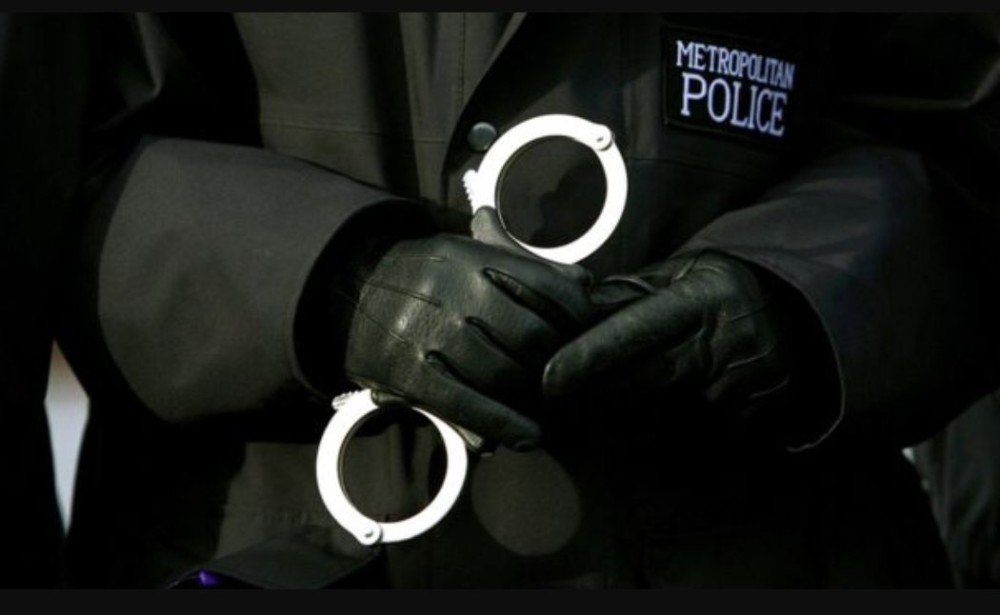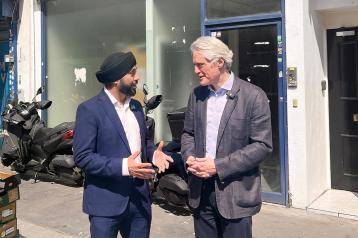
Operation Puglia raid. The raids targeted dangerous criminal gangs who were using teenagers to move and sell drugs across county lines
Eighty suspected drug dealers were arrested last week after thousands of Met Police officers raided properties in west London as part of Operation Puglia.
The massive police effort was aimed at tackling drug dealers who are exploiting vulnerable young people through organised crime. The raids targeted dangerous criminal gangs who were using teenagers to move and sell drugs across county lines.
The police have now confirmed that they arrested 80 people in dawn raids across H&F and neighbouring boroughs. Seventy of those were charged with 296 drug-related offences during the raids from Monday to Wednesday last week.

“We will not tolerate the exploitation of young and vulnerable residents by callous drug-dealing gangs,” said Cllr Sue Fennimore, Deputy Leader of Hammersmith & Fulham Council.
“Many end up enslaved in the system – with no way out – while the drug dealers who prey upon them profit. We will do all we can to end this cycle of misery for young people.”
Officers funded by H&F Council were among those on the raids. The council has increased its funding to put 46 police officers on the street – the most ever funded in the council’s history and across London – which is in direct response to residents’ concerns about crime.
Arrests and charges
Last week’s successful raids between 16 and 18 July resulted in 80 suspects being arrested - 70 were targeted and 10 in the course of the raid.
The 70 people targeted for arrest were charged with 296 offences as follows:
- 268 charges of supplying a controlled drug
- 16 charges of being concerned in the supply of a controlled drug
- 6 charges of possession with intent to supply
- 4 charges of possession of a controlled drug
- 2 charges of failing to provide a sample for drug testing.
Drug dealers exploit young and vulnerable

A major new campaign to protect vulnerable people from being exploited by drug dealers was launched this week in the wake of the police raids.
The charity Crimestoppers is campaigning to raise awareness of ‘county lines’ offences.
County lines refers to gangs and organised criminal networks which export illegal drugs into suburban, rural areas. The crime sees county lines gangs exploit children and vulnerable adults to move drugs and money.
The gangs move into a rural or suburban area for a short time, taking over the home of a vulnerable person where they set up a base.
Many of those taken advantage of by these gangs have been forced to carry out criminal activity by threats, grooming and extortion and can be described as modern day slaves.
“We know that the term ‘county lines’ might not be widely recognised, which is why we are launching this campaign and asking for your help to support us in tackling this issue,” said Emily van der Lely, Crimestoppers lead on county lines.
“We need help to put a stop to this exploitation and the damage that these criminals are inflicting on our communities and those being taken advantage of.”
You can help – report your concerns
Crimestoppers is calling on residents to help.
Here are some typical signs. Have you noticed:
- A child or young person (sometimes as young as 12), during school hours or unusual hours (early in the morning, late at night)? They might be in a shopping centre, high street, or on public transport.
- A child, or young person who seems unfamiliar with the local area?
- A child or young person being approached, or intimidated by a controlling peer or group?
- A child or vulnerable person who is deliberately avoiding authority figures, such as police officers or security guards?
- More people calling at a local address than normal? Sometimes at unsociable hours?
- Suspicious vehicles, or people at an address?
- A neighbour you’ve not seen for a while?
If you see something concerning either a young or vulnerable person that doesn’t feel right, or looks suspicious, you can report your concerns to Crimestoppers anonymously, on 0800 555 111, or send an untraceable online form at crimestoppers-uk.org.

Want to read more news stories like this? Subscribe to our weekly e-news bulletin.
By sending us a comment, you are agreeing to our publishing policy.




